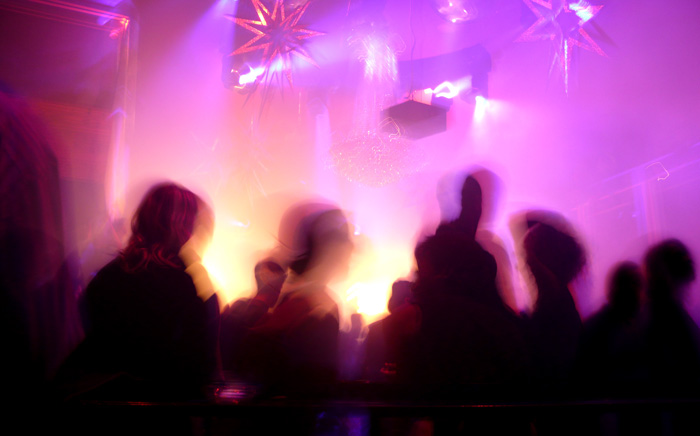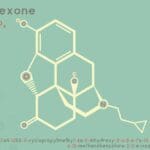If you were a member of an alien species tasked with researching the culture of people on Earth, with a focus on the culture of the United States, there would be plenty of resources to consider. But let’s imagine that your alien research center has only been provided with a library of popular music from the last 50 years or so. After some intensive listening, you might reach a tentative conclusion: a great deal of American life seems to happen in a place called “the club.”
Dangerous Dealings
Now, if you are a human living on Earth, you probably realize that “the club” has an outsized presence in pop culture. The vast majority of folks spend little to no time in the kinds of clubs we hear about in our popular music. Still, the notion of the club—with its associations with partying, dancing, and hooking up—is one of free-spirited, sexy fun. But free-spirited does not necessarily mean free from consequence, especially when “club drugs” are involved. Club drugs are dangerous–whether you take them in an actual club or in some other setting. Let’s take a look.
Club Drugs: What Are They?
A variety of drugs tend to be grouped together under the heading “club drugs.” They include:
- Acid (LSD)
- Bath salts
- Crystal meth (methamphetamines)
- Ecstasy and liquid ecstasy (MDMA and GHB)
- Roofies (flunitrazepam)
- Special K (ketamine)
- Spice (synthetic cannabinoids)
(We should note that Roofies are best known as the so-called “date rape drug” because they can impair a person’s memory and lead them to have sex they have not consented to. It is important to remain vigilant in any situation in which a person could slip you a drug.)
As a general rule, people experiment with club drugs in the hopes that they will heighten an experience—a party, a concert, a night out, etc.—by reducing inhibitions, amping up feelings of excitement, and/or sparking pleasurable hallucinatory experiences. A person taking a club drug might feel that they are simply trying to take their current experience to “the next level”—and they may convince themselves that the drugs are essentially harmless.
But that, of course, is not true at all.
A Closer Look at Ecstasy
Ecstasy (MDMA or 3,4-methlenediozy-methamphetamine, which is a much less appealing name) is a hallucinogen and a stimulant. It lowers your inhibitions, enhances your senses and can provide a sense of well-being that explains its name.
That might all sound good, but it leaves out the other possible effects of the drug. In the short-term, those effects may include:
- Sweating or chills
- Muscle tension, faintness, and/or nausea
- An increase in blood pressure and heart rate
- Confused thought processes
- Seizures and/or loss of consciousness
- A dramatic rise in body temperature that may lead to kidney failure or even death
Ongoing use of Ecstasy can lead to serious long-term effects as well, including:
- Increased likelihood of depression, anxiety, and impulsiveness
- Difficulties related to attention, memory, and sleep
- Damage to the heart, including arrhythmia (an irregular heart beat)
- Reduced appetite and libido
- Sustained confusion and reduced cognitive function
Clearly, none of those effects lead to anything that could remotely qualify as “ecstasy.” That’s true of potential withdrawal symptoms, too. They include:
- Depression
- Trouble concentrating
- Fatigue
- Loss of appetite
Feeling the Agony of Ecstasy or Other Club Drugs?
So what should you do if you find yourself struggling with Ecstasy or any of the other club drugs? Whether you have developed a physical or a psychological dependence (or both) on a drug, you need to get help right away. Signs that you are struggling with a substance use disorder include strong cravings for the drug (and withdrawal symptoms when you don’t have access to it), increased tolerance (meaning you have to take more of the drug to get the same effects), and continued use of the drug despite the negative psychological or physical consequences.
The idea of “the club” as a wonderful ongoing party where consequences of dangerous behaviors are somehow suspended is a myth. An alien researcher with limited data might fall for it. But you, our presumably human reader, should not.
Welcome to the (Recovery) Club
If you are struggling with drugs or alcohol, you may feel like you are a club of one. It may be difficult to see how you will ever get free from your substance use disorder or how you will be able to put your life back together. But the good news is that many people have started where you are now and have found their way back. The Aviary Recovery Center can help you become a member of an important and encouraging club made up of people who have put drugs or alcohol behind them and are working to maintain their sobriety day by day.
At The Aviary Recovery Center we will listen to you so that we understand your unique situation, including any co-occurring mental health disorders (like depression or anxiety) that may be contributing to your substance use disorder. We will personalize a treatment plan that will carry you through detox and rehab. This plan will likely include both individual and group therapy—and the latter can be a real encouragement as you meet others who are in the same “club” as you are and who are working toward the same important goals. When it is time to leave treatment, we will make sure you have the resources and support you need to sustain your sobriety as part of our commitment to a continuum of care.
(314) 464-0222. We’re here to help.










